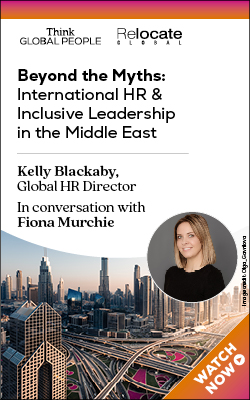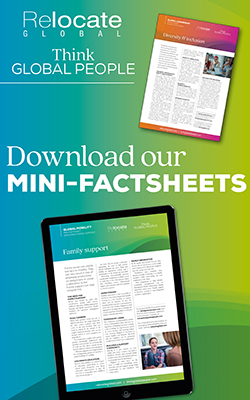UK notches up new employment record
UK labour market "remains in good order" but businesses are reporting that recruitment is being hampered. What are the persistent hiring difficulties faced by UK business - and why?

 16 April 2019
16 April 2019Office for National Statistics: highest UK employment figures since records began in 1971
The Office for National Statistics (ONS) revealed that employment rose by 179,000 in the three months to February, representing a 457,000 increase on the year and bringing the total in employment to 32.7 million, the highest since records began in 1971.The annual increase was provided by rises in full-time employment and among the self-employed while the number in part-time work fell by 15,000. Meanwhile, unemployment fell by 27,000 to 1.34 million, representing a 3.9 per cent rate not seen since 1975.Alok Sharma, Minister of State for Employment: the UK must get behind a Brexit deal that protects jobs and gives employers certainty
Minister of State for Employment Alok Sharma commented: "The UK jobs market continues to go from strength to strength, proving the underlying resilience of the British economy."But we must not take this for granted. We need to work urgently to get behind a Brexit deal that protects this jobs record and gives employers the certainty to continue to invest in their workforce and boost wages."With more people in work than ever before, it is welcome news that wages are continuing to rise at their fastest rate in a decade. And by increasing the living wage and personal tax allowance for 2019, this government is putting more money in people’s pocket, benefiting millions of families across the country."British Chambers of Commerce: key hiring challenges remain
Suren Thiru, head of economics at the British Chambers of Commerce (BCC), said the figures indicated the UK labour market "remains in good order" but warned that key challenges remained."Businesses are increasingly reporting that persistent hiring difficulties, cost pressures and ongoing uncertainty are dampening recruitment intentions. If this trend is sustained it could well translate into a weakening in UK jobs growth over the next year," he said."Pay growth continues to comfortably outstrip price growth, and in real terms is likely to remain in positive territory for some time to come. However, the combination of a sluggish economy, weak productivity and high up-front costs for business is likely to limit the extent of pay rises."The record high number of job vacancies is further confirmation of the perennial skills shortages plaguing UK businesses, which continues to hold back business activity and growth. "To protect the long-term health of the UK labour market, businesses need answers to key questions on how firms will be able to manage their future workforce needs over the next few years. Brexit has distracted government and Westminster for too long, much more must be done at home to address the UK’s chronic skills shortage, including easing the burden of up-front business costs to help firms to hire and train staff."Institute of Directors: "Brexit uncertainty might actually be helping job creation"
Tej Parikh, senior economist at the Institute of Directors, felt that continuing Brexit uncertainty might actually be helping job creation because firms unwilling to spend heavily on expensive new equipment to boost productivity, have been hiring new staff instead. "The elongated period of uncertainty has kept businesses in a hiring cycle. Many firms have lacked the confidence to put funding toward training, technology, and new machinery, which has in turn meant firms need to hire more workers to lift output," he said."Without a pick-up in investment, low productivity will also keep wages from growing further, particularly when considering the higher regulatory costs businesses are facing this tax year.That implies that job creation could stall if Brexit is finalised, or that productivity will remain weak if the crisis rumbles ever onwards."Subscribe to Relocate Extra, our monthly newsletter, to get all the latest international assignments and global mobility news.Relocate’s new Global Mobility Toolkit provides free information, practical advice and support for HR, global mobility managers and global teams operating overseas.
 Access hundreds of global services and suppliers in our Online Directory
Access hundreds of global services and suppliers in our Online Directory
©2026 Re:locate magazine, published by Profile Locations, Spray Hill, Hastings Road, Lamberhurst, Kent TN3 8JB. All rights reserved. This publication (or any part thereof) may not be reproduced in any form without the prior written permission of Profile Locations. Profile Locations accepts no liability for the accuracy of the contents or any opinions expressed herein.






























